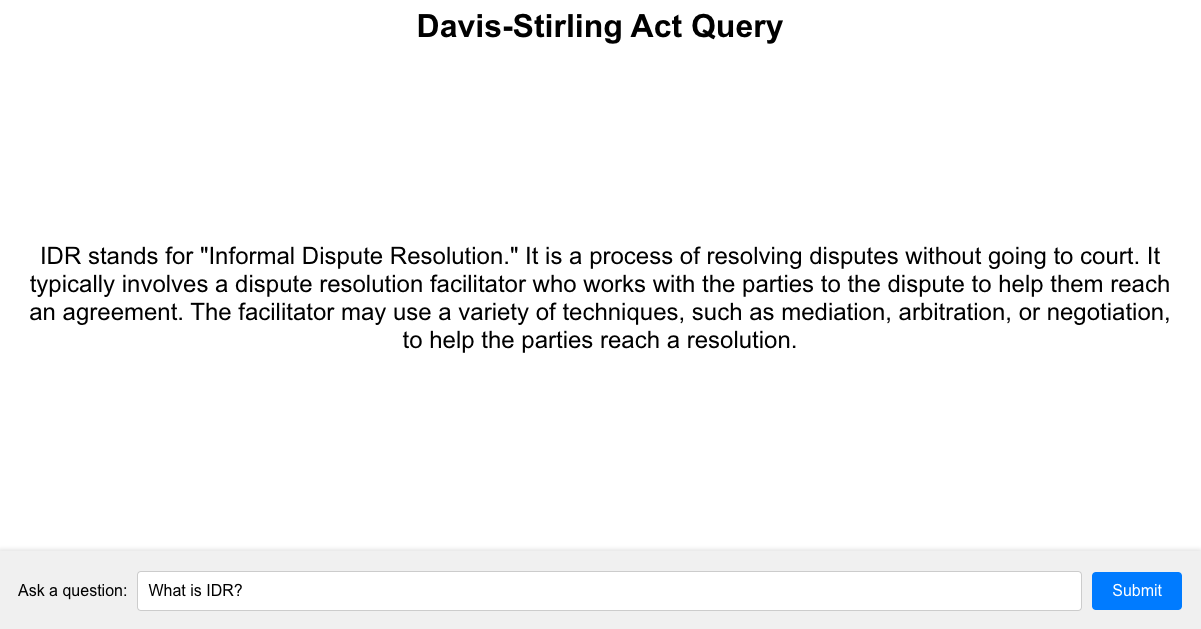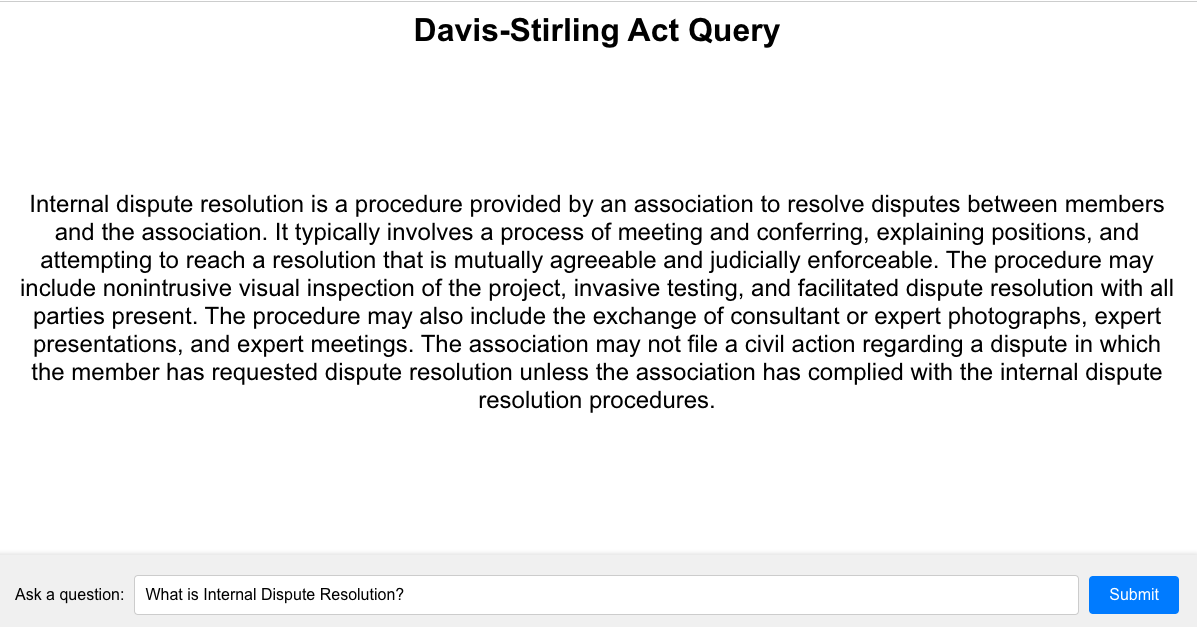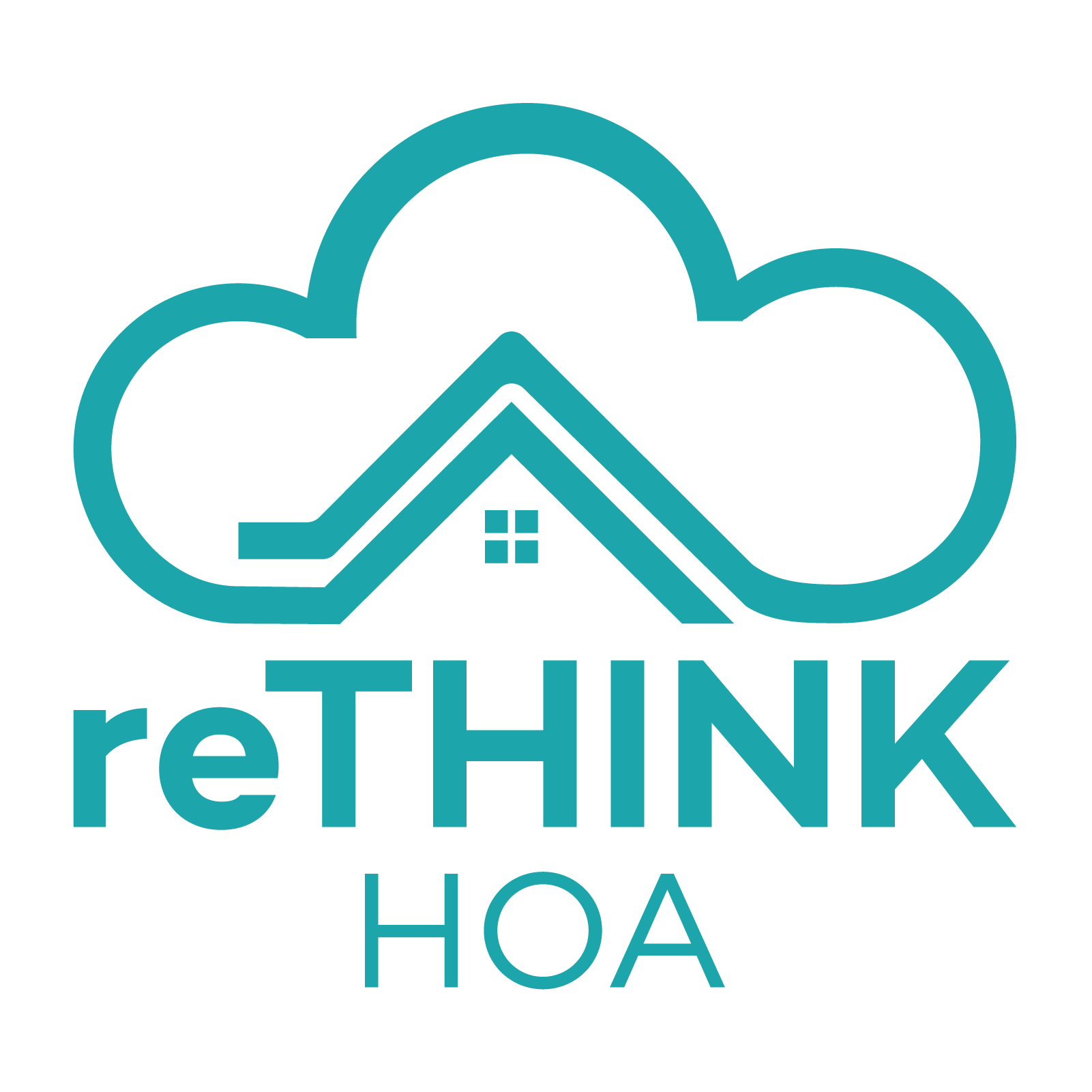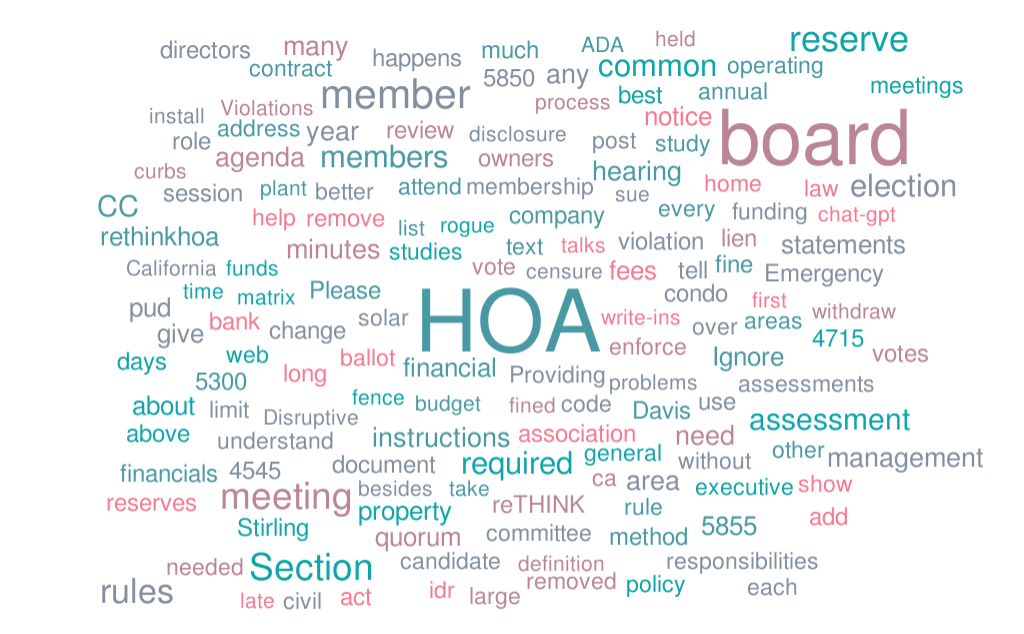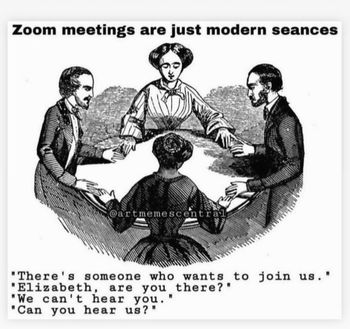Within the first 48 hours of our Davis-Stirling.AI launch, we've received a flurry of user queries, reflecting the tool's wide-ranging potential to address the intricate aspects of HOA governance. At reTHINK HOA, we're committed to fostering transparency and enhancing our understanding of user needs. In light of this, we have categorized the queries we received, providing a clearer picture of how our tool is being used and what improvements we're actively working on.
HOA Basics and Definitions
From defining HOA terms to understanding the roles within HOA management, users submitted numerous queries. Here are some examples:
- What is the definition of a quorum?
- What is the role of a member at large?
- What is the role of property management?
- What is the role of the HOA attorney?
- What is a rogue board member?
HOA Meetings and Operations
Users asked a range of questions about the conduct of HOA meetings and operations:
- How much advance notice do we need to give for a board meeting?
- How do I conduct a legally compliant election?
- How many times can a board member miss a meeting before removal from the board?
HOA Rules and Regulations
Users sought clarity on HOA rules and the extent of their enforcement:
- Is there a statutory limit to how much you can increase your fees every year?
- Can the HOA have separate rules for children?
- Can an HOA enforce rules that are not in the CC&Rs?
- How is "reasonable" defined in HOA operating rules in California?
HOA Financials and Reserves
Financial management and reserves were crucial subjects, with queries including:
- When do we need to do a reserve study?
- Is there a limit to reserve contributions?
- Can we borrow from reserves?
- Can we raise the regular assessments mid-year?
Concerns about Property Management
Another distinct category of queries was related to issues with property managers or management companies. Users expressed various concerns:
- What can I do if my property management isn't performing their duties adequately?
- How can I address miscommunication issues with my property management company?
- Is there a recourse if my property management company is not transparent about financial transactions?
- Can we change our property management company, and what would be the process?
- Can a property manager close our HOA's bank accounts without board authorization?
HOA Legalities and Compliance
Legal requirements of HOA management and homeowner rights were key areas of user interest:
- Do board minutes have to reflect a vote for a changed rule?
- Can a ballot to elect a director contain the designation incumbent?
- Can I be fined without a hearing?
Understanding the Davis-Stirling Act
Users showed a keen interest in understanding more about the Davis-Stirling Act:
- What is the Davis-Stirling Act?
- What is the role of this act in HOA governance?
- Can you explain the implications of Section 4205 of the Davis-Stirling Act?
Sections of the Davis-Stirling Act
As users delved deeper into HOA governance, they showed interest in specific sections of the Davis-Stirling Act:
- Section 4715: Regarding pet restrictions within an HOA
- Section 5850 and 5855: Related to fines and enforcement of HOA rules
- Section 4545: Concerning transfer fees within an HOA
- Section 5300 Subdivision (b): On HOA finances and assessments
Getting to Know reTHINK HOA
Many users wanted to learn more about our company, reTHINK HOA, and our endeavors:
- What is the vision of reTHINK HOA?
- How is reTHINK HOA planning to revolutionize HOA management?
- What future updates can we expect from reTHINK HOA?
At reTHINK HOA, we believe that the future of HOA management should be efficient, transparent, and accessible. As we continue to innovate and refine, we aim to provide a platform that simplifies your HOA management experience. We're committed to making this vision a reality, and your feedback is crucial in shaping the future of our tool.
What's Next?
Your continued participation and feedback are vital for us to revolutionize HOA management effectively. That's why we're proud to reveal that we're developing a robust HOA management software that aims to simplify compliance, promote transparency, and adapt to changing legal landscapes.
With your input, we aim to create a future where every HOA is a beacon of community, fairness, and harmony. We encourage you to stay engaged with our platform, share your thoughts, and shape the future of HOA management.
If you're interested in self-managing your HOA, read this inspiring story of how one HOA embraced self-management and saved $6000 annually. Are you ready to embark on the journey to efficient self-management with reTHINK HOA? We're here to support and guide you every step of the way.
